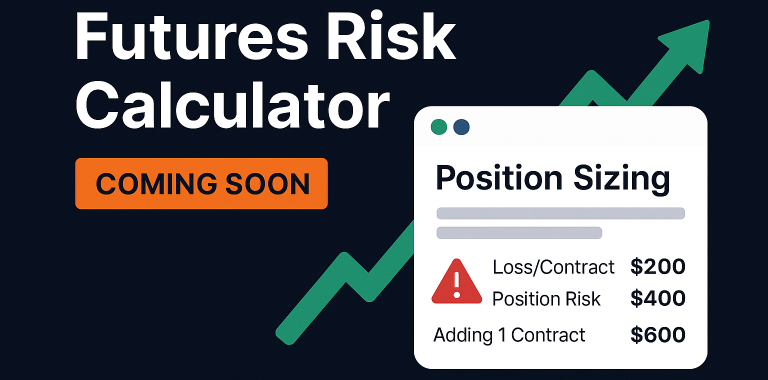How to choose a broker that won’t screw you over.
Your broker holds your money and executes your trades. Choose wrong and you’ll face hidden fees, slow execution, poor customer service, or worse – losing your money when they go bankrupt. Here’s how to find brokers that actually work for traders.
What Brokers Actually Do
Core Functions
Hold your money – Your trading capital sits in their accounts
Execute your trades – They send your orders to the market
Provide trading platforms – Software to place and manage trades
Offer leverage – Let you control larger positions (if you want)
Customer support – Help when things go wrong
How They Make Money
Spreads – Difference between buy and sell prices
Commissions – Fixed fees per trade
Overnight fees – Charges for holding leveraged positions
Currency conversion – Fees for trading different currencies
Premium services – Advanced platforms, data, research
Broker Types: Know What You’re Getting
Full-Service Brokers
Examples: Charles Schwab, Fidelity, TD Ameritrade
Best for: Long-term investors, retirement accounts
Pros: Research, education, branch offices, FDIC insurance
Cons: Higher fees, focus on investing not trading
Discount Brokers
Examples: Interactive Brokers, E*TRADE, Robinhood
Best for: Self-directed traders who don’t need hand-holding
Pros: Lower fees, better trading tools, faster execution
Cons: Limited research, minimal customer support
Forex Specialists
Examples: OANDA, FXCM, Forex.com
Best for: Currency traders who want tight spreads
Pros: 24/5 markets, high leverage, currency expertise
Cons: Limited to forex/CFDs, complex fee structures
Crypto Exchanges
Examples: Coinbase, Binance, Kraken
Best for: Digital currency trading and storage
Pros: Direct crypto access, staking rewards, DeFi integration
Cons: Regulatory uncertainty, security risks, limited traditional assets
What Actually Matters When Choosing
1. Regulation and Safety
US brokers: FINRA/SIPC protection up to $500,000
UK brokers: FCA regulation, FSCS protection up to £85,000
EU brokers: Various regulators, investor compensation schemes
Offshore brokers: Minimal protection, avoid unless you know what you’re doing
2. Execution Quality
Speed – How fast your orders get filled
Price improvement – Getting better prices than expected
Slippage – How often you get worse prices
Rejection rates – How often orders fail to execute
3. Costs That Actually Impact You
Trading fees – Commissions or spreads on every trade
Account fees – Monthly maintenance, inactivity charges
Withdrawal fees – Cost to get your money out
Currency conversion – Fees for international trades
4. Platform Quality
Reliability – Platform stays online during volatile markets
Speed – Fast order placement and execution
Mobile access – Trade from your phone effectively
Charting tools – Decent analysis capabilities
Red Flags: Brokers to Avoid
Immediate Deal Breakers
No regulation – Your money has zero protection
Guaranteed profits – No legitimate broker promises this
Pressure tactics – Constant calls pushing you to deposit more
No phone support – When things break, you’re stuck
Withdrawal problems – Check reviews for payout issues
Warning Signs
Too-good-to-be-true spreads – They make money somewhere
Complex fee structures – Designed to confuse you
Bonus schemes – Usually come with impossible conditions
Aggressive marketing – Legitimate brokers don’t need to oversell
Poor online reviews – Especially about withdrawals
Broker Comparison by Market
Stock Trading
Best overall: Interactive Brokers (professionals), Charles Schwab (beginners)
Cheapest: Robinhood, Webull (but limited features)
Most features: thinkorswim, TradeStation
International stocks: Interactive Brokers, Charles Schwab
Forex Trading
Tightest spreads: Interactive Brokers, OANDA
Best platforms: MetaTrader brokers (many options)
Most reliable: OANDA, Forex.com
Beginner-friendly: IG, Plus500 (CFDs)
Crypto Trading
Most coins: Binance, KuCoin
Most secure: Coinbase, Kraken
Best for beginners: Coinbase, Gemini
Advanced features: Binance, FTX
Futures Trading
Professional grade: Interactive Brokers, TD Ameritrade
Specialized platforms: NinjaTrader, TradeStation
Low commissions: Interactive Brokers, E*TRADE
Best education: TD Ameritrade
Options Trading
Advanced tools: thinkorswim, Interactive Brokers
Low commissions: Tastyworks, E*TRADE
Best education: thinkorswim, Fidelity
Mobile trading: Robinhood (basic), thinkorswim (advanced)
Questions to Ask Before Opening an Account
About Costs
What are the trading commissions? – Get exact numbers
Are there any monthly fees? – Maintenance, platform, data
How much to withdraw money? – Wire fees, check fees
Any inactivity charges? – Fees if you don’t trade regularly
About Execution
Where do you route orders? – Market makers vs. exchanges
Do you offer direct market access? – Important for active traders
What’s your average execution speed? – Milliseconds matter
Do you guarantee stop losses? – Most don’t, some charge extra
About Safety
What regulation do you have? – Specific regulator and license number
How is my money protected? – Insurance amounts and coverage
How long have you been in business? – Newer isn’t always better
Can I see your financial statements? – Public companies must disclose
Testing Before You Commit
Demo Account Phase (Week 1)
Test the platform – Is it intuitive and reliable?
Try different order types – Market, limit, stop orders
Check execution speed – How fast do orders fill?
Test customer support – Call with a simple question
Small Account Phase (Week 2-4)
Deposit minimum amount – Usually $100-500
Make a few real trades – Emotions change with real money
Test withdrawals – Try to get some money out
Monitor during volatility – How does platform perform when markets move?
Common Broker Switching Mistakes
Moving for Wrong Reasons
Mistake: Switching because of a few bad trades
Reality: The broker didn’t cause your losses
Solution: Focus on improving your trading, not blaming the broker
Chasing Lower Fees
Mistake: Moving to save $2 per trade
Reality: Execution quality matters more than small fee differences
Solution: Calculate total costs including spreads, not just commissions
Too Many Accounts
Mistake: Opening accounts with 5+ brokers
Reality: Spreads capital thin, harder to track performance
Solution: Use 1-2 brokers maximum until you’re consistently profitable
Account Transfer Process
What You Need to Know
ACATS transfers – Automated system for US stock transfers
Forex account transfers – Usually require closing and reopening
Crypto transfers – Often need to sell and rebuy
Timeline – 3-7 business days typical for stocks
Documents Required
Account statements – From both old and new brokers
Tax information – For cost basis transfers
Identity verification – Driver’s license, passport
Transfer forms – Both brokers will have specific forms
Costs to Expect
Transfer fees – $50-100 from losing broker
New account bonuses – Some brokers reimburse transfer fees
Tax implications – Transfers usually don’t trigger taxes
Downtime – May not be able to trade during transfer
Multi-Broker Strategies
When It Makes Sense
Different markets – Stock broker + forex broker + crypto exchange
Backup access – In case primary broker has technical issues
Feature specialization – Best charting + best execution
Geographic diversification – US broker + European broker
When It’s Overkill
Just starting out – Master one platform first
Casual trading – Monthly trades don’t need multiple brokers
Small accounts – Minimum deposits add up quickly
Same market focus – Two stock brokers rarely needed
Bottom Line: Choose Boring and Reliable
The best broker for you:
- Is properly regulated in a major jurisdiction
- Executes your orders fast and at fair prices
- Charges reasonable fees without hidden surprises
- Provides reliable platforms that work when you need them
- Offers decent customer support when problems arise
Don’t get seduced by flashy marketing or “too good to be true” offers. The best brokers are often boring – they just work reliably without drama.
Ready to compare specific brokers? Check our detailed reviews by market:
→ [Stock Brokers →] – Full-service vs. discount comparison
→ [Forex Brokers →] – Spreads, regulation, platform quality
→ [Crypto Exchanges →] – Security, fees, coin selection
Need help choosing? Use our broker comparison tool to filter by your specific needs and trading style.
No Tilt Trading – Trading Without the Noise

